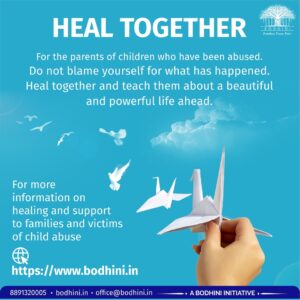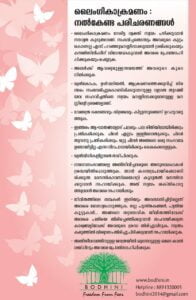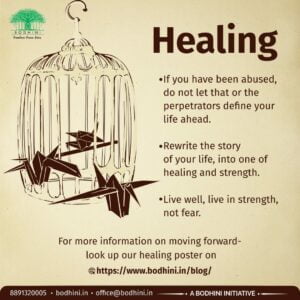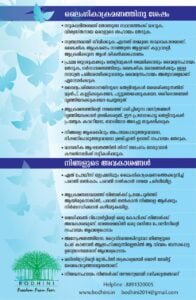Sexual violence
Sexual violence is any sexual act performed by one (or more) person(s) on another without consent, sometimes with the use of threat or force. Any sexual act performed on a person who is unconscious or incapacitated to give consent also amounts to sexual violence. Sexual violence happens regardless of the relationship the victim has with the perpetrator, as in many cases, such crimes are perpetrated by intimate partners or persons closely associated with the victim. Sexual violence against men and boys, although largely neglected, is as serious as the sexual violence against women.

Past decade showed a 49% increase in Rape in India. Statistics pertaining to sexual violence primarily come from Police data. But it is always underreported as people do not report sexual violence to police because they are either ashamed, or scared of being blamed, not believed or otherwise mistreated.
The crime of sexual violence is extremely personal to the victim and hence the reaction might be very different too. There is no one type of typical reaction or effect to sexual violence. The effects could be physical (For e.g. pregnancy, chronic pain, gastrointestinal disorders, gynaecological complications, sexually transmitted diseases (STDs), frequent headaches, genital injuries etc.), psychological (shock, fear, denial, confusion, withdrawal, PTSD symptoms, depression, anxiety etc.) and social (strained relationships with family, friends, and intimate partners and the like.)
Consequences of sexual violence go beyond physical manifestations. Some of the long-term mental health concerns that may arise are;
- Depression: It is one of the most common consequences seen in victims of sexual assault which often go unnoticed and untreated. It could even prove fatal in some cases. Some symptoms are listed below;
- The major symptom of depression is low or blue mood.
- Anhedonia: an inability to experience happiness from activities usually found enjoyable.
- Finding it hard and unable to get on with their daily lives, complete even the routine tasks.
- Withdrawing from family and friends and avoiding any social interaction.
- Changes in pattern of sleep and eating
- Pains and aches in different parts of the body (in some cases)
- Feeling hopeless and helpless
- Expressing death wishes frequently (in some cases)
- Tendency to blame oneself for the violence perpetrated on them
These symptoms, although easily attributed to other causes, may often be signs of depression.
What can be done as a friend or relative of a victim experiencing these symptoms of Depression:
- Reassure them and help them seek the medical help they need;
- Tell them if the symptoms are experienced for more than two weeks, the person should undergo a professional consultation;
- Try to make them understand that consulting a mental health professional, when our emotional wellbeing needs attention, is no different from consulting a doctor when we are physically weak or ill;
- Tell them feeling depressed is not a sign of weakness and;
- That depression can affect people of any age, gender, race, ethnicity, or religion.
- PTSD: Post traumatic stress disorder is another commonly diagnosed effect of sexual assault. It’s a debilitating condition and symptoms often last a lifetime if not treated.
Some symptoms seen in persons suffering PTSD from sexual violence are:
- The survivors may have flashbacks of the traumatic events. This could be triggered by day-to-day interactions and sensations.
- The tendency to avoid any place, activity, objects or conversation that leads to the memory of the sexual violence.
- There may be changes in thought patterns and mood.
- A survivor may persistently feel sad or angry and may stop interacting with people.
- They may find themselves unable to enjoy activities they once used to.
- They may have difficulty in recollecting events, especially related to the assault.
- They may have tendency to blame themselves for the assault.
- Survivors with PTSD often have difficulty in falling or staying asleep.
- They may become hyper vigilant and may startle at the minimal stimulation.
- Some experience anger outbursts and are irritable with very little provocation.
What can be done as a friend or relative of a victim experiencing these symptoms of PTSD:
- Tell your loved one he or she is strong and capable of recovery.
- Speak of the future and make plans for recreational activities.
- Simply be there for the survivor.
- Listen to them talk about their fears and allow them to be upset about it.
- Do not invalidate their feelings.
- Help them find support.
- Substance Use Disorders: Survivors of sexual violence often start using substances as an unhealthy coping mechanism and end up caught in the cobweb of addiction. This adds to their burden of trauma and affects their lives as well as the lives of people around them.
What can be done as a friend or relative of a victim struggling with substance abuse:
- Build trust with the survivor
- Talk to them about your concerns and offer support
- Encourage them to get help from medical professionals
- Tell them recovery is a slow process and assure that you will be with them every step of the way.
- Introduce them to support groups.
- Anxiety: Anxiety is associated with extensive and excessive worry about a particular situation or in general.
Symptoms include:
- Extensive worry of encountering further abuse.
- Some might even experience panic attacks that last few minutes. (Increased heart rates, difficulty in breathing, sweating, trembling, fear of losing control or going crazy, fear of dying etc.)
- Restlessness
- Nausea
- Lack of concentration
- Stress that is out of proportion to any event that transpired.
What can be done as a friend or relative of a victim struggling with anxiety:
- Learn about anxiety
- Help them spot when their anxiety-driven patterns are occurring
- Rather than imposing, ask the survivor what kind of support they need.
- Tell them you are concerned and encourage them to seek professional help
Sexual violence can also affect other areas of well-being as well such as self-esteem, confidence, trust, impulse control, coping with stress etc.
- Find a safe environment away from the abuser
- Call a close friend or relative – someone who will offer unconditional support
- Please wait till all medical evidence is collected before you change clothes, bathe, or brush your teeth.
- It is very important to get complete medical evaluation that includes evidence collection, a physical examination, treatment and/or counselling at the earliest.
- Ensure that your clothes are saved as they are, in an air tight plastic bag without cleaning them, so that the evidence is not lost. Know that you do not have to do any part of the evaluation that you do not want to do.
- Seek medical care for first aid and to rule out pregnancy, STD, and other infections.
- You should seek medical care, even if some time has elapsed since the event or there is scant or no evidence for collection. A doctor can offer advice on reporting the event, address concerns regarding infection, pregnancy, and safety, and help you to begin to recover.
- Discuss filing a police report with an experienced social worker, healthcare provider or a legal expert
- Seek counselling services.
Tips to overcome the trauma
- Get Your Feelings Out
- Talking about, as well as writing down the feelings you’re experiencing – no matter how raw or unpleasant – will ease the healing process.
- Talk about your experience to a therapist, in your support group, or to those you trust and are willing to listen.
- It Is Never Your Fault
- Always remember that there is only one person to blame for what has happened to you and that is the person who committed the rape or sexual assault.
- Tell yourself that even if you could have done something differently, it may not have changed the outcome.
- Give yourself the same benefit of the doubt and compassion that you would give a friend or loved one if they had been assaulted or raped.
- Keep in mind that no one ever “deserves” to be assaulted.
- Instead Of Hiding It or Ignoring The Trauma, Face It, Understand How And When It Triggers You And Learn Ways To Overcome It In Your Own Time
Seek the necessary trauma treatment that will help you recognize your triggers and learn how to prevent them from causing panic attacks or other negative reactions. Facing your fear will allow you to eventually overcome it.
- Life Can Still Be Great!
- You can’t change what happened to you, but you can choose to not let it define your life.
- While it may seem cliché to say, “whatever doesn’t kill you makes you stronger”, the saying is true. You are in charge. You are stronger than ever before.
- It will take effort and time to overcome this completely but know that you can and you are strong enough to do it.
Helping to heal post sexual violence
- Understand that withdrawal, anger outbursts, repeatedly talking about the assault are all part of the process of healing.
- Different people have different reactions to trauma. Some react, some internalize and some deny. Do not judge them.
- Get them material on survivor stories, information on what they are going through and empower them.
- Show them good things to look forward to like music, nature, books, friends.
- Strengthen their belief in themselves. Reinforce their strengths.
While Walking on the road:
- Avoid dark, deserted places and short-cuts, if you have an alternative.
- Try not to be distracted while walking, for e.g. wearing ear phones while walking. That might make you more vulnerable. Be alert if you are in conversation with someone over the phone.
- Carry a pepper spray
While at home:
- Install a peephole/ safety chain on the door.
- Replace the locks when you move to a new house or apartment.
- Ensure you lock all the doors and windows. Do not leave your keys unattended.
- Know your neighbours well; they serve as eyes while you are away.
While driving:
- If you are being followed, do not drive into your building compound/driveway or leave your car. Drive to a nearest police station or public place and call for help.
- Always park in well-lit areas.
- Do not unlock your car from a distance.
- Enter your car after quick inspection and lock the doors.
While travelling outstation:
- Gather all information of the destination prior to departure.
- Ensure family members and concerned persons know your itinerary.
- Carry multiple copies of identity proof and travel documents
Hotel safety:
- Request a hotel room with a peep hole and safety chain.
- Quickly inspect the place for any threat/hidden cameras in the presence of hotel staff.
- In shower fixtures, false ceiling, smoke detector, artefacts, flower vases, ducts, grooves etc.
Safety at social gatherings:
- Share the details of the person you are going out with to your family/friends or anyone you trust. Inform them of your expected time of return and update them if there is any change. If your phone might run out of battery, let them know that so they don’t worry.
- Ensure your travel arrangements in advance.
- Do not accept drinks or food from strangers. Never leave your drink unattended; if you have, do not pick the glass again. Order a fresh one.
While travelling by auto or taxi:
- Always sit exactly behind the driver- in case of an auto it’s in the middle of the seat and in case of taxi that’s towards the right. It will give you easy accessibility to the driver and if he tries to reach at you, he will have to take a full turn that will give you time to escape.
- Never talk about your plans over the phone while you are travelling by an auto or taxi- E.g. you being alone at home while your parents are at work or any other plans or the amount of cash you just withdrew from bank.
- After boarding the taxi or auto, call any of your family members or friends and inform them the number of the vehicle you are travelling in and make sure the driver hears that. If you phone is out of battery, pretend to do this.
- Keeping windows open sometimes gives you extra option to shout out if needed.
- Keep the conversation polite and on a professional level. Limit it to everyday matters rather than personal things.
In case of FIGHT-OR-FLIGHT situations, It’s safer to choose FLIGHT






